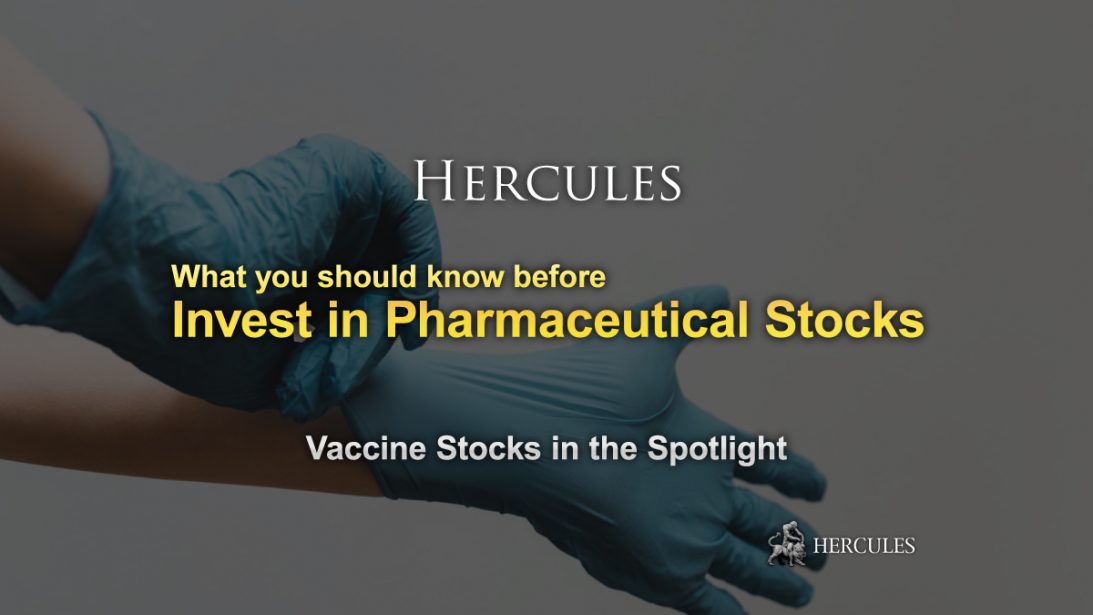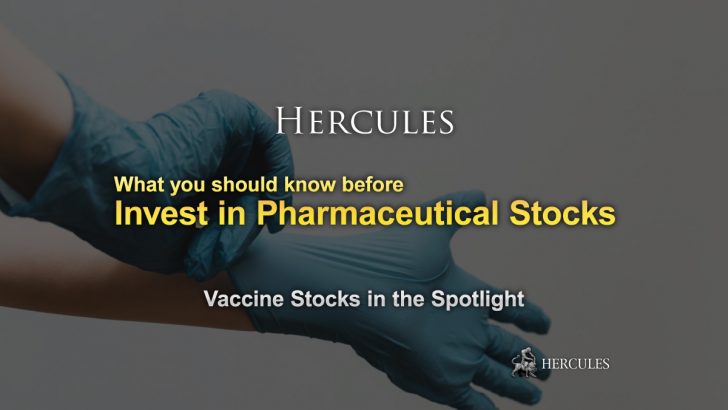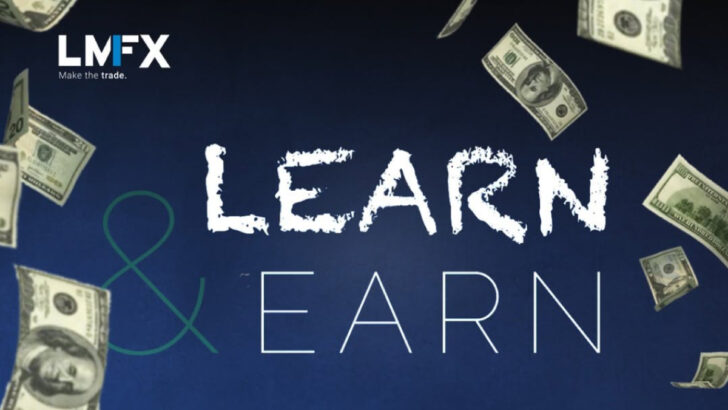Categories
Is it the best time to invest in Vaccine, Pharmaceutical Stocks?


Vaccine stocks in the spotlight
With the vaccination process currently being one of the most important actions carried out globally to help fight the pandemic, many market participants are watching in parallel how the different vaccine producers are doing from a business and financial perspective.
At the moment, the vaccination process is carried out extensively in some countries but others like South Africa and India are still stalling.
As the matter will continue to be with us for the next year’s considering the opinion of epidemiologists, this report will be dedicated to the current fundamentals surrounding some of the most popular vaccine producers at the moment.
In the future, we aim to revisit this subject and provide updates as we are positive that updates and changes of circumstances will prevail thus traders will definitely be interested.
How COVID-19 Vaccine News can affect financial markets?
Pfizer supposedly agrees with EU for a big deal
Pfizer Inc. (#PFE) and BioNTech SE announced their mRNA-based vaccine candidate back in November 2020.
Even though this was less than a year into the pandemic outbreak, the vaccine was quickly given an Emergency Use Authorization (EUA) by the U.S. Food and Drug Administration (FDA) on the 11th of December.
Since then the manufacturing process has been enhanced tremendously by Pfizer and some bottlenecks that had surfaced during the beginning are seemingly subsiding.
Pfizer and BionNTech’s vaccine uses a new gene-based technology involving messenger RNA consisting of molecules that carry genetic instructions.
mRNA vaccines direct cells to make a harmless version of the spike protein that increases from the new coronavirus.
Production of the protein trains the immune system to recognize the real coronavirus and combat it without having to overwork.
In the past months, Pfizer managed to assemble an intensive manufacturing network which the company forecasts will produce 2 billion doses this year.
In the past week official, Pfizer quarterly results indicated revenues rose to $14.6 Billion while adjusted Diluted EPS followed higher just $0.93 for Q1 2021.
Both the figures exceed previous quarterly readings and analyst expectations, while the EPS has more than doubled since the last quarter of 2020.
In the past days, many media sites had publicized that the European Union has turned towards Pfizer-BioNTech and its novel COVID-19 vaccine technology by agreeing to a huge contract extension for a potential 1.8 billion doses by 2023.
Invest in Stocks of the pharmaceutical companies working on Covid-19 vaccine
Moderna observes sales rocketing
On the 18th of December, the U.S. Food and Drug Administration (FDA) issued an Emergency Use Authorization (EUA) to Moderna’s covid-19 vaccine.
Very similar to Pfizer, Moderna’s vaccine uses messenger RNA (mRNA).
At the moment the company forecasts it could reach as close to 1 billion doses in 2021.
For the first quarter of 2021, Moderna’s total revenue reached $1.9 billion compared to the minor $8 million for the same period in 2020.
As a result of the gigantic demand for its covid-19 vaccine, Moderna’s share price propelled by 488% in 2020 and is currently up 56.17% on a year-to-date basis.
These figures indicate Moderna’s share price may have become the most volatile among vaccine stocks and could even be subject to speculation.
Over the last year, the Company nearly doubled the size of its workforce.
Due to the dramatic demand for its vaccine, Moderna has increased its employees to 1,500 which is almost double the figure for the same time in 2020.
In the past week, the company announced the expansion of its Technology Center (MTC) in Norwood, MA doubling it in space.
This move indicates the company’s eagerness to increase production capacity in the near future.
Moderna is already accepting orders for new supply agreements as in the case of the Swiss Federal Government which is expecting 7 million booster doses in 2022, as announced in the past days.
COVID-19 Pandemic – How world’s Economy has changed in a year?
J&J vaccines authorized despite the negative press
On the 27th of February 2021, the Janssen Pharmaceutical Companies announced it had received clearance for its vaccine by the U.S. Food and Drug Administration (FDA) as an Emergency Use Authorization (EUA).
J&J’s (#JNJ) vaccines are different than Pfizer and Moderna’s in various ways.
First of all, it is a single-dose COVID-19 vaccine which means people can complete their vaccination much faster as opposed to the pre-mentioned that requires two doses with a time interval between them.
The technology behind the J&J vaccine is different and is called the Viral vector vaccine which aims to deliver important instructions to our cells.
For the first quarter of 2021, J&J saw revenues increase to 22.3B which was an increase of 7.9% compared to the same time last year.
Of course, the company produces many other products and the increase in sales may not account for vaccines produced only.
At some point after the vaccine’s authorization, the J&J vaccine usage was halted due to a rare blood-clotting disorder emerging in some recipients.
Eventually, the vaccine pause was lifted and the FDA along with the CDC stated the vaccine’s benefits outweigh its potential risks in individuals 18 years of age and older.
On a year-to-date basis, J&J is currently up 7.07% and its share price has managed to move higher in consecutive months since March proving this is also a volatile share.
Trade Pharma, Airline, and Stay-at-home Stocks
Merck side by side with J&J
Merck Inc. (#MRK) is not among the vaccine producers and has not developed its own vaccine for the time being.
On the 25th of January, the company officially announced it was discontinuing the development of its COVID-19 vaccine candidates.
However, on the 2nd of March, the company came back and announced they were entering into multiple agreements to support and uplift manufacturing capacity and supply of COVID-19 medicines and vaccines naming specifically it would work with Johnson & Johnson.
This came as a surprise to market participants as the two companies have been rivals.
Yet in our opinion, if Merck is involved in any way in the production of any vaccine currently authorized, then it is a vital force to the weakening of the pandemic and could in many ways impact the process further negative or positive.
On a year-to-date basis, the company is down -4.14% while its quarterly results had not shown its sales had increased or decreased but rather remained steady compared to the same time last year.
Yet as headlines continue to come in and the vaccine process is a very important subject at the moment, we expect the company to undertake considerable attention from the media in the near future.
These headlines could create volatility for its share price.
Invest in Pharma Stock Market on FXPrimus MT4
Conclusion
The major US covid-19 vaccine producers have come under pressure in the past week as the US government stated they are willing to temporarily waiver intellectual property provisions and enable other pharmaceutical companies outside the US to produce their own vaccines.
Some opinions strongly doubt that pharmaceuticals have the capabilities to do so.
According to the Wall Street Journal manufacturing, the Covid-19 vaccine is a complex scientific process that involves securing hard-to-find raw materials and scaling them in a way that has never been done before.
This is much easier said than done.
Also, the use of special, expensive equipment with trained personnel must also be added to the equation if things are to work properly.
Even though the US proposal has faced some opposition so far, it may have sparked new interest in the subject and could create market waves if the decision to do so is finalized.








